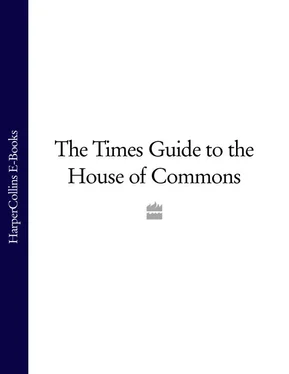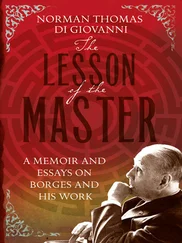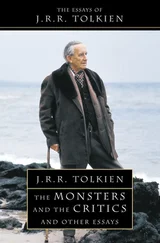A week and a half later the three parties had hammered out a 20-page agreement, giving priority to education, renewable energy, a halt to hospital closures and a referendum on full law-making powers to the Assembly. Mr Wyn Jones was to become First Minister with the Conservative and Liberal Democrat leaders, Nick Bourne and Mike German, both as Deputy First Minister. It would have created the first Conservative ministers since 1997 and the first three-party coalition in Britain since Lloyd George was Prime Minister.
Incredibly, it was the party that stood to gain most, the Welsh Lib Dems, with just six Assembly seats, that pulled the plug. Their negotiating team backed the deal, as did their Assembly group, but a vote of their Welsh national executive committee split, nine in favour and nine against, with no provision in the rules for a casting vote. Furious, Plaid opened talks with Labour to agree a One Wales Agreement that confirmed a rethink on hospital closures and put emphasis on affordable housing and better transport links between North and South Wales. Mr Wyn Jones had to settle for the post of Deputy First Minister, with Mr Morgan back in charge.
The latter honoured his pledge to stand down, bowing out in December 2009 after almost a decade as the figurehead of Welsh devolution, declaring that he would spend more time digging his allotment and attending to his hobby of wood-carving. The election to succeed him was spirited but predictable with Carwyn Jones, the favourite of three candidates, emerging as the victor with 52 per cent of the vote. A barrister in criminal and family law, and Assembly Member for Bridgend since its creation, he had a relatively low profile other than during the foot-and-mouth outbreak in 2001, when he was Minister for Rural Affairs. His most recent post was that of Counsel General and Leader of the House.
The One Wales Agreement left little scope for him to make his mark in policy, other than by his choice of ministers and progress implementing the coalition programme, particularly the unfinished business of a referendum on full law-making powers for the Assembly. Labour’s defeat in the general election of 2010 left Carwyn Jones one added responsibility, as the most senior Labour politician in power in Britain.
All change, the gravy train has hit the buffers
Ben Macintyre
Times columnist
There was the Rump Parliament (1649) and the Long Parliament (1640), the Mad Parliament (1258) and, quite simply, the Bad Parliament (1377). But what to call the 54th Parliament, which seemed so very long, so mad and, in many ways, so very bad? This will be, for ever, the Duck House Parliament. Little did Sir Peter Viggers imagine, when he ordered an obscure and expensive item of furniture for his pond, that he would be creating a grim leitmotif for an era of scandal that inflicted such damage on the institution he had served for 36 years. In a cruel twist, the wretched ducks did not even like their new house, which Sir Peter tried to include in his parliamentary expenses. They refused to live in it.
The Parliament ushered into being by the 2005 election and put out of its misery in April 2010, was one of astonishing turbulence, buffeted by scandal, economic meltdown and political acrimony. All the major parties changed leader: the Liberal Democrats twice. The Speaker was forced out of office for the first time since 1695. At the end of the Parliament, a remarkable 149 MPs stood down, including 100 Labour members and 35 Tories.
Far more important than the changing faces was the transformed relationship between the electors and the elected. Faith in politicians plummeted. After the expenses scandal of 2009, John Bercow, the new Speaker of the House of Commons, declared: “Let me be brutally honest about the scale of what has occurred. I cannot think of a single year in the recent history of Parliament when more damage has been done to it than this year, with the possible exception of when Nazi bombs fell on the chamber in 1941.”
The bomb of the expenses scandal fell from a sky that was already overcast and stormy. The election of 2005 brought some notable newcomers to the House, including Nick Clegg and Ed Miliband. When Tony Blair won his third consecutive victory in 2005, with a reduced overall majority of 66, the Afghan war was already four years old and the war in Iraq had been under way for two years. The Parliament started in a truculent mood, which got steadily worse. Mr Blair was accused of misleading Parliament over the war and of ruling in presidential style. Mounting war casualties, the bitter grinding rivalry between Blair and Brown and the Prime Minister’s growing unpopularity gave a sour, fin de siècle flavour of intrigue to the first two years of the Parliament, as it became ever clearer that Mr Blair would not fulfil a promise to serve a full third term.
David Cameron became leader of the Tories in October 2005 after a late surge of support. Sir Menzies Campbell took over leadership of the Liberal Democrats after Charles Kennedy resigned, citing a drink problem. Sir Menzies resigned after 19 months, paving the way for Mr Clegg to win the leadership by a waferthin margin. While the opposition parties forged new leaderships, the Blairites and Brownites traded blows and snide spin. The first attempted coup came in September 2006, when the Brownite parliamentary secretary at the Ministry of Defence, Tom Watson, signed a letter to Mr Blair asking that he resign to end the uncertainty over his succession. He was told to withdraw the letter or resign his ministerial position. He quit, with another broadside at Mr Blair: “I no longer believe that your remaining in office is in the interest of either the party or the country…the only way the party and the Government can renew itself in office is urgently to renew its leadership.”
Mr Blair described Mr Watson’s actions as “disloyal, discourteous and wrong”. The plot thickened when it appeared that Mr Watson had visited Mr Brown’s home in Scotland the day before the memo was sent. Mr Watson claimed that he had merely been dropping off a gift for the Browns’ new baby son, Fraser.
The uncertainty, the rumours, the whiff of conspiracy and allegations of treachery set the tone for the rest of the Parliament: a poisonous legacy that Mr Blair would bequeath to Mr Brown, along with the premiership, in June 2007. Mr Brown’s uncertainty over whether to call an election four months later, and his final decision to wait, compounded the impression, in some quarters, of a vacillating prime minister, untested at the polls and unwilling to throw the dice, holding on to office and motivated by expediency.
In April 2009, it emerged that Damian McBride, Mr Brown’s special adviser and former head of communications at the Treasury, had discussed with the former Labour Party official Derek Draper the setting up of a website to post false and scurrilous rumours about the private lives of senior Tories and their spouses. Mr McBride resigned. Mr Brown was publicly apologetic and privately apoplectic. “Smeargate” left another stain.
This, then, was the unsettled backdrop for the great expenses explosion: creeping political disillusionment and war-weariness, a sense that after coming to power amid widespread euphoria Blair had done little to change parliamentary culture, a souring economy and the looming spectre of recession, and the peculiarly nasty aftertaste of Mr McBride’s Smeargate. A series of smaller scandals paved the way, most notably when it emerged that the Conservative MP Derek Conway had employed his son, a full-time student at the time.
Under the old rules, MPs could claim expenses, including the cost of accommodation, “wholly, exclusively and necessarily incurred for the performance of a Member’s parliamentary duties”. A Freedom of Information Act request filed early in 2008, aimed at finding out exactly what MPs were claiming, was challenged by the House of Commons authorities as “unlawfully intrusive”. When, after much legal wrangling, the House agreed to release the details, it did so with obvious reluctance, insisting that “sensitive” information be removed. Even before the touch-paper was lit, the House of Commons adhered firmly to the belief that how MPs chose to spend our money was their business, not ours.
Читать дальше












